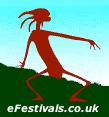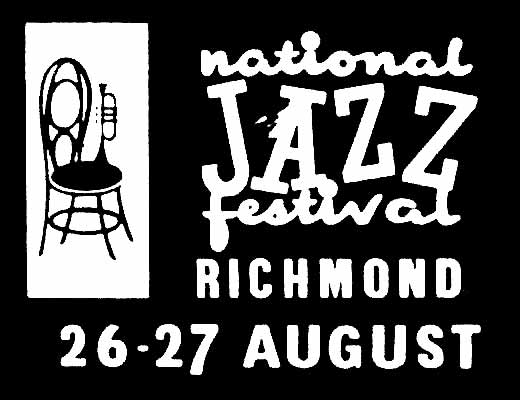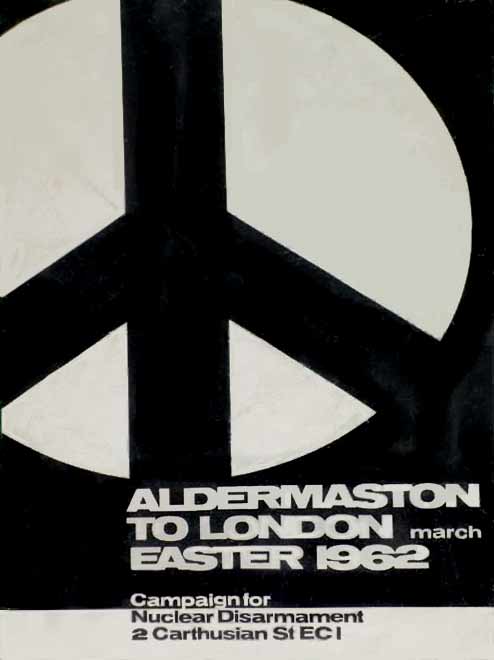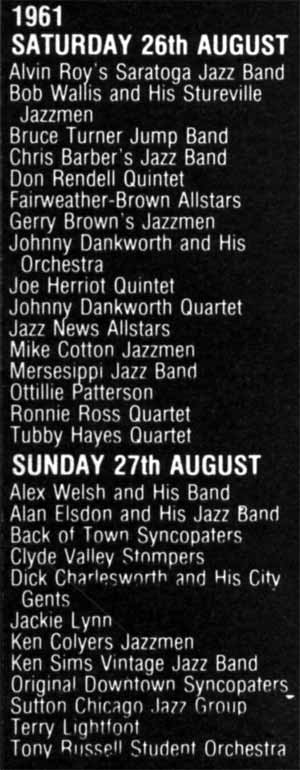
The Archive
|
|
For
information on today's festivals see eFestivals.co.uk |
Last update November 2012.

|
Richmond. Surrey. UK. 26th -27th August 1961 |
The view from the stage 1961:Images courtesy Theresa |
Britain in the 1950s ( yawn )
The Britain of the early 1950s and early 1960s was , overall, pretty boring . The conservative government of Harold Macmillan was viewed as safe . cautious and pedestrian. When he told the populace that they had 'never had it so good', there was an element of truth to his words, compared to the hardship they had undergone for the past 15 years or so. After the second world, war, the United Kingdom had been , to all extents and purposes , broke. Gold reserves had been spent on armaments bought from the Americans , the Empire had more or less ceased to be . The commonwealth did not contribute to the British coffers as it had of old and the depression of the 1930s had hit the working class very hard. In the immediate years after the war , the population had to undergo years of food rationing . It was only during the 1950s that things had improved as investment in public infrastructure began to drag the country out of the mire. This newfound prosperity, transient as it proved to be , was one major reason why the music festival came into being . The 1950s ,with all its cold war angst, fear of armageddon and paranoia over communist infiltration , was the era in which the hordes of wartime baby boomers were to endure conscription ,experience their first fumbling with a member of the opposite ( and occasionally the same ) sex and , in the goodness of time , to morph into that newly named beast " The Teenager " . As employment rates improved ,the youth of Britain became increasingly empowered , as they were generally able to get low skilled jobs after leaving school at the ripe old age of 14 or 15 . This left a reasonable proportion cashed up and able, for probably the first time , to have money to spare to spend on consumer items. The introduction of the vinyl long playing record , Television, Rock and Roll and cheaper consumer goods meant that the stage was set for some major changes to take place in the social fabric of the country . The teenager was to play an increasingly prominent role in the social upheaval that was to irrevocably change British society over the next decades. Teens were also not as docile as they used to be in the decades between the wars. They were experiencing new found freedoms, partly due to the introduction of the welfare state after the war by the Labour government. Citizens no longer had to worry about starving if they were laid off at work, there were pensions, free health care and better education for all. The increasing emancipation of women, many of whom had worked during the war and were now experiencing oportunities that did not just encompass the role of housewife, paved the way for the sexual revolution that took place later on in the decade. The final part of the puzzle was the introduction of " The Pill". For the first time , young lovers did not have to worry about burdening themselves with babies if they indulged in sex. it was liberating and it changed the behaviour patterns of teenagers for all time. |
 |
Over all of this new found jollity hung the spectre of ' the Bomb"- would we all manage to survive the decade? Many thought that the UK had become one big USA base and we would be annihilated if the Russians and the yanks had a go at each other with all those nice ICBM's that they had stored around Europe. Kennedy and Mr Khrushchev brought us to the brink in October 1962 with the Cuban Missile Crisis ( the threat of which was building up in the months before the 1962 festival following the disastrous Bay of Pigs fiasco in May 62. ) The marches to Aldermaston would have been very much in the minds of many at the festival as the international situation spiralled out of control in the summer of 1962.
CND marches to Aldermaston protesting about the presence of Nuclear weapons on British soil were amongst the events that were to radicalise a percentage of British youth and to lead them to question the directions in which their leaders were taking them. |
Trad jazzers imbibe their drug of choice , BEER ! |
So what do many of us humanoids do when we are faced with stresses in our daily lives ? We self medicate. nothing new in that, but once again, swift changes in the pharmaceutical industry, migration from foreign climes and increasing international trade between countries led to some major new possibilities in the self meds that were available . Illegal drug taking was not yet an everyday occurrence amongst teenagers, only a few had access to cannabis and strong psychedelics such as LSD and DMT were in their infancy . However their parents were busy popping legal pills with gay abandon . The introduction of the National Health service by Labour after the war, meant that the working class now had access to cheap prescription drugs. Anti depressants to cure the ever increasing neuroses of the mid 20th century were popular amongst housewives who were still stuck at home with the children in suburbia . Their flip side, speed, was also readily available. Benzedrine had been handed out to the troops during the war to keep them going during the stresses of battle and the serious health hazards of their over consumption was yet not widely appreciated . Enterprising teens could raid their mum or dads medicine cabinet and nick a few ' uppers" or "downers ' which produced various side effects when combined with alcohol. Booze of course, was always available if you wanted it and it was this substance which has proved to be the driver of most excesses at British festivals for the last 50 years . Think of all those poor overworked livers ! |
Beaulieu
There had been Jazz festivals held in the grounds of the stately home of Lord Montagu of Beaulieu during the 1950s, these can be said to have spawned the National Jazz festival. Booze had led to some naughtiness on the part of the punters in 1960 and 1961 was to prove to be the last of these bashes, with the National Jazz festival usurping that role after 1962 . So the musical seeds had been sown and the ground prepared for the UK to host its first ever National Jazz festival, ironically , just during the era when Jazz was to loose much of its popularity amongst the youth of the country. In the cities of London and Liverpool , Hull and Birmingham, Wolverhampton , Swansea and Leeds, bored teens were discovering rock and roll and the blues , which were to prove far more exciting and pervasive influences on British music than trad or mainstream jazz had ever been . |
Beaulieu punters |
The First Festival
Little did the organisers of The mother of them all, the first National Jazz festival know, but this Jazz festival was to mutate into a long lived beast, which over its long , almost continuous lifetime of 50 years has featured jazz, blues, R&B folk, psychedelic, progressive , fusion, reggae, punk, metal, alt and grunge . Apart from the earlier Jazz festivals held in the 50s at Beaulieu ( and of all places, Butlins Holiday Camp ) as far as we know, the Nat Jazz was the first large music festival held in the UK that would feature the blues .
The first festival was definitely a JAZZ festival , the emphasis was on Jazz to the exclusion of almost every other musical form. Trad jazz was the rage at the time and many of the attendees wore striped socks, bowlers and toppers . For this first festival, the weather was hot and the local St John's ambulance team treated 22 wasp stings. There were other years where RAIN was to turn the festival fields ( mostly at Reading ) into mud bowls , but this wasn't one of them .
The Jazz was mostly trad and mainstream , probably the most far out music would have come from Joe Harriott who went on to form the Indo Jazz Fusion with John Mayer. Harriott featured some free form segments in his live shows, although just how well this would have gone down with the trad crowd is not known, but we doubt it was welcomed. The names of most of the bands are indicative of their styles .
|
 |
We had no idea that Jefferson Airplane tunester Paul Kantner was present at the festival , but here he is ,complete with stripey shirt, gyrating to the crazy sounds of the Original Downtown Syncopaters :-). |
This timidity regarding the booking of any REALLY major league overseas acts was to continue throughout the festivals history in the 60s,70s and 80s .Whilst Freddy Bannister was busy booking Led Zeppelin in 1970 , the closest the Nat Jazz got to superstar level acts was Cream and later the Who. The Isle of Wight featured Dylan, Hendrix , The Doors , Miles etc, the Nat Jazz almost always settled for bands who went on to make it big, but once they did, they booked another , cheaper alternative. This is perhaps understandable regarding rock acts, who began to charge astronomical sums for their services and some of the promoters of the big events often ended up bankrupt for their pains.
Promoting festivals is generally a risky business and this cautious approach worked for the National Jazz and Blues festival , which was always middling in size right up until the 1990s ( and was in some ways all the better for it ) . But given that Miles Davis and John Coltrane were touring the UK in this era, its a great shame that the organisers tended to play it a bit safe , especially in the Jazz sphere , as we doubt that their fees were that intimidating at this relatively early stage of their careers.
Recordings .
Apparently Giorgio Gomelsky filmed Chris Barber’s band at this , the first Richmond Jazz Festival. if he did, we've not been able to find traces of any recordings of this or any other acts from the festival.
The early festivals.
You can find out the complete
line ups of the first festivals if you follow the links below.
|
|
|
|
|
Festivals 65-83
Most of these have fairly complete documentation .
| |
|
|
|
|
| |
|
|
|
|